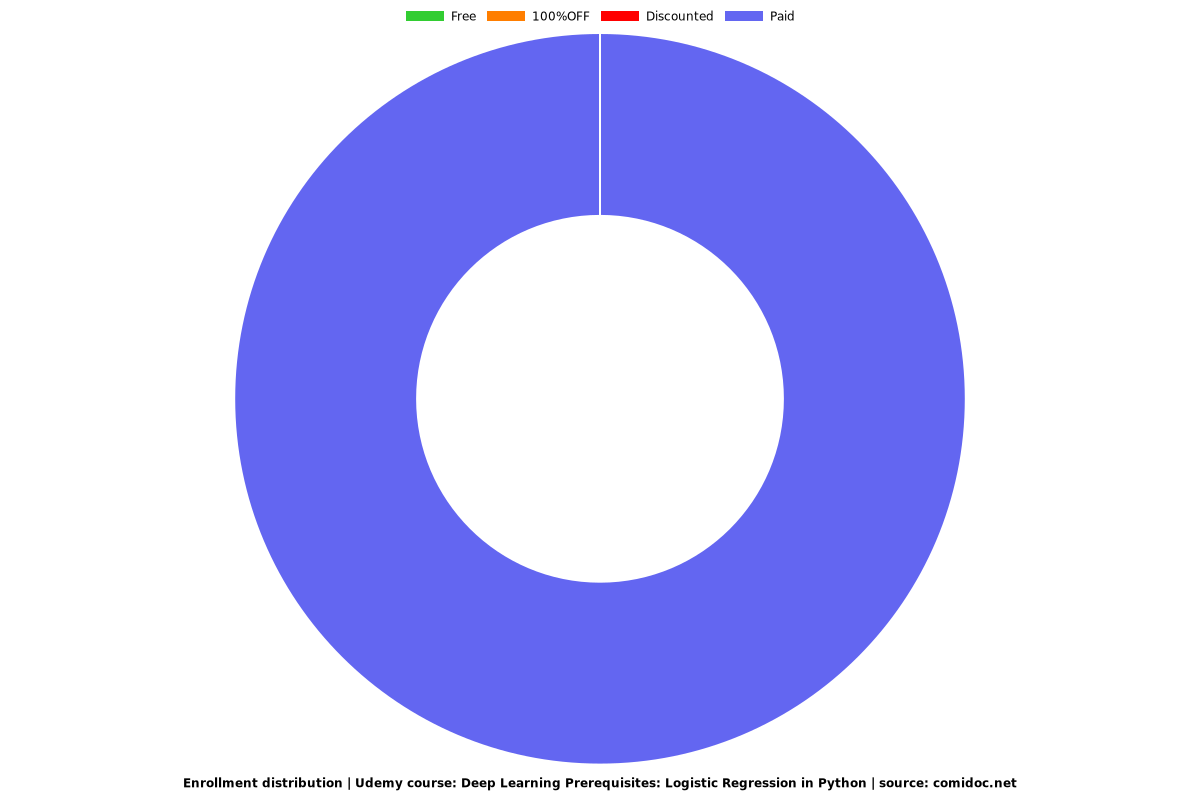Deep Learning Prerequisites: Logistic Regression in Python
Data science, machine learning, and artificial intelligence in Python for students and professionals

What you will learn
program logistic regression from scratch in Python
describe how logistic regression is useful in data science
derive the error and update rule for logistic regression
understand how logistic regression works as an analogy for the biological neuron
use logistic regression to solve real-world business problems like predicting user actions from e-commerce data and facial expression recognition
understand why regularization is used in machine learning
Understand important foundations for OpenAI ChatGPT, GPT-4, DALL-E, Midjourney, and Stable Diffusion
Why take this course?
Ever wondered how AI technologies like OpenAI ChatGPT, GPT-4, DALL-E, Midjourney, and Stable Diffusion really work? In this course, you will learn the foundations of these groundbreaking applications.
This course is a lead-in to deep learning and neural networks - it covers a popular and fundamental technique used in machine learning, data science and statistics: logistic regression. We cover the theory from the ground up: derivation of the solution, and applications to real-world problems. We show you how one might code their own logistic regression module in Python.
This course does not require any external materials. Everything needed (Python, and some Python libraries) can be obtained for free.
This course provides you with many practical examples so that you can really see how deep learning can be used on anything. Throughout the course, we'll do a course project, which will show you how to predict user actions on a website given user data like whether or not that user is on a mobile device, the number of products they viewed, how long they stayed on your site, whether or not they are a returning visitor, and what time of day they visited.
Another project at the end of the course shows you how you can use deep learning for facial expression recognition. Imagine being able to predict someone's emotions just based on a picture!
If you are a programmer and you want to enhance your coding abilities by learning about data science, then this course is for you. If you have a technical or mathematical background, and you want use your skills to make data-driven decisions and optimize your business using scientific principles, then this course is for you.
This course focuses on "how to build and understand", not just "how to use". Anyone can learn to use an API in 15 minutes after reading some documentation. It's not about "remembering facts", it's about "seeing for yourself" via experimentation. It will teach you how to visualize what's happening in the model internally. If you want more than just a superficial look at machine learning models, this course is for you.
"If you can't implement it, you don't understand it"
Or as the great physicist Richard Feynman said: "What I cannot create, I do not understand".
My courses are the ONLY courses where you will learn how to implement machine learning algorithms from scratch
Other courses will teach you how to plug in your data into a library, but do you really need help with 3 lines of code?
After doing the same thing with 10 datasets, you realize you didn't learn 10 things. You learned 1 thing, and just repeated the same 3 lines of code 10 times...
Suggested Prerequisites:
calculus (taking derivatives)
matrix arithmetic
probability
Python coding: if/else, loops, lists, dicts, sets
Numpy coding: matrix and vector operations, loading a CSV file
WHAT ORDER SHOULD I TAKE YOUR COURSES IN?:
Check out the lecture "Machine Learning and AI Prerequisite Roadmap" (available in the FAQ of any of my courses, including the free Numpy course)
Screenshots


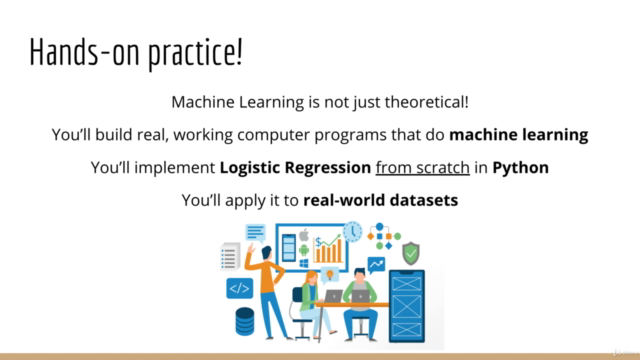
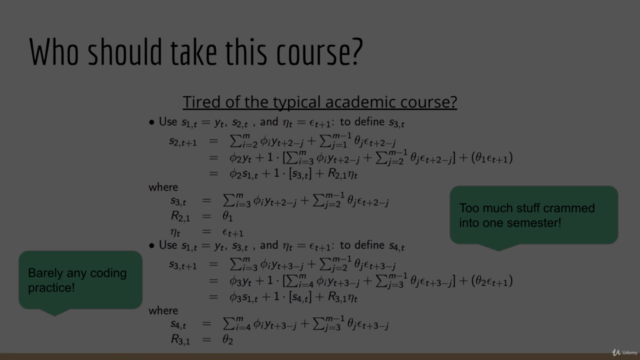
Our review
Charts
Price
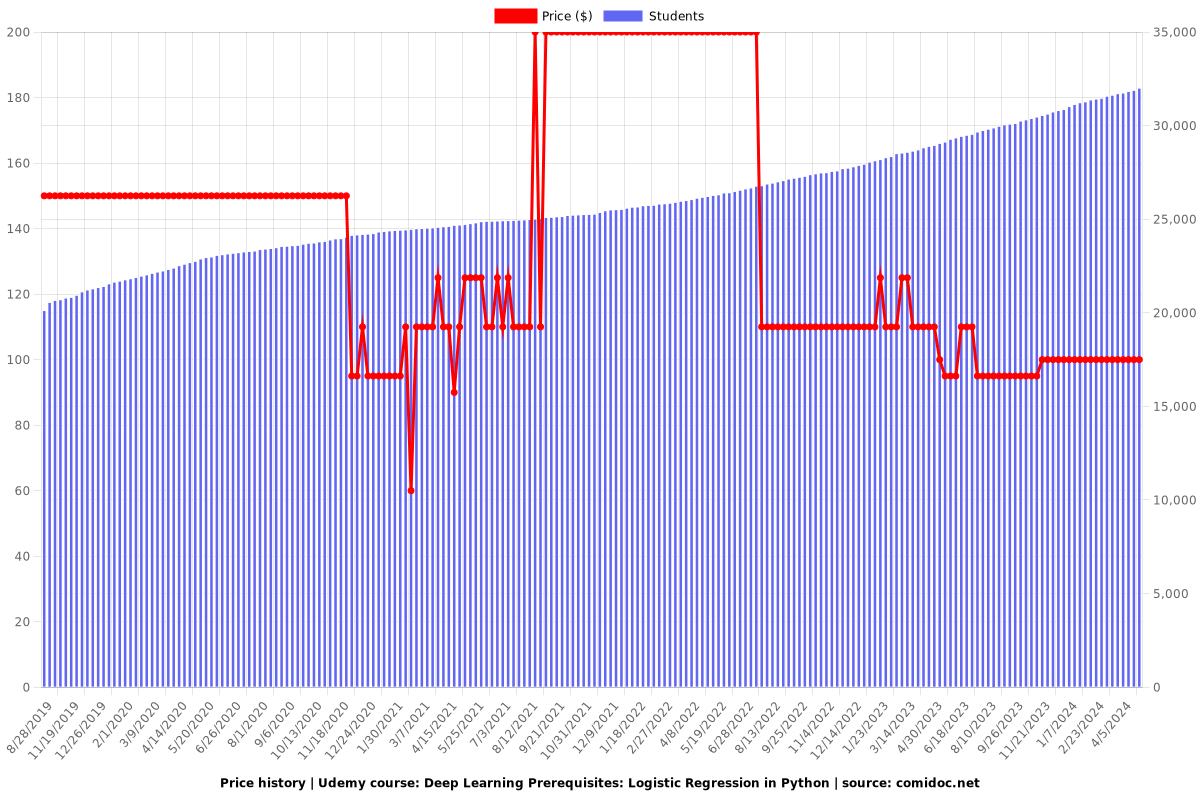
Rating
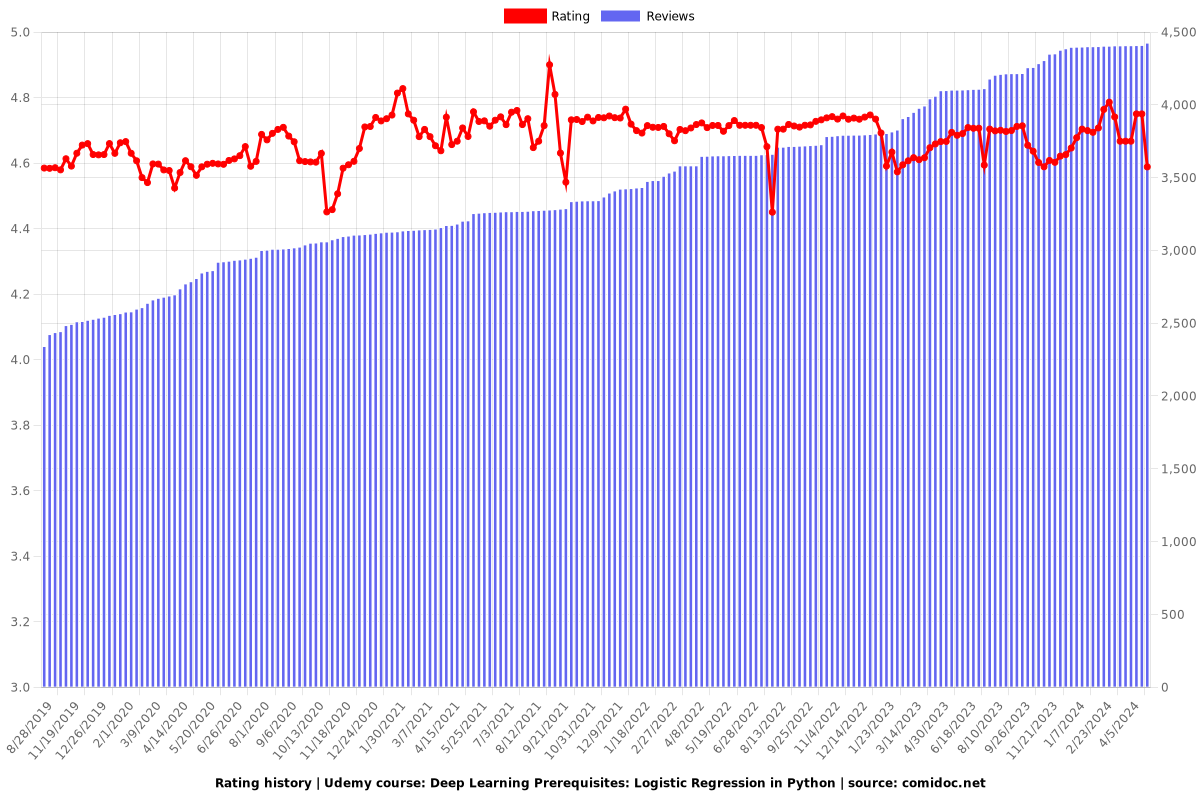
Enrollment distribution
